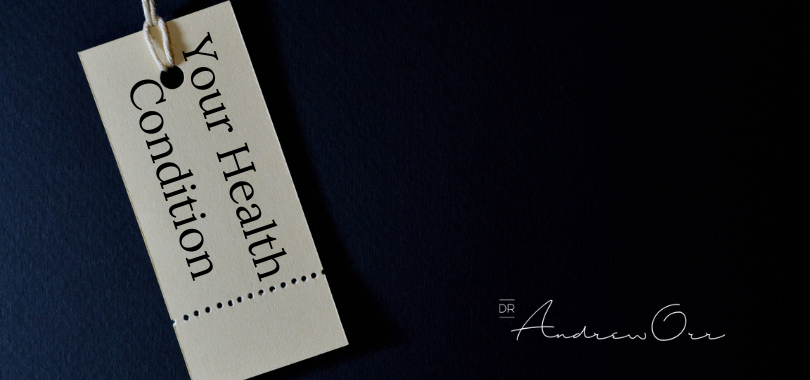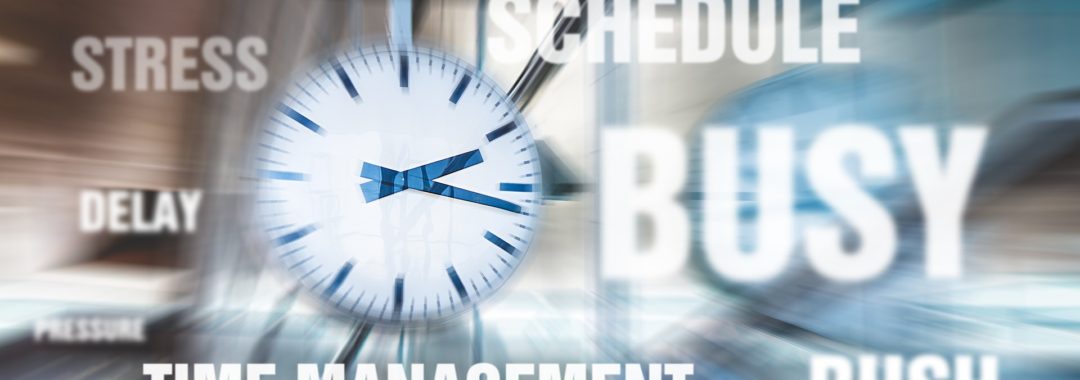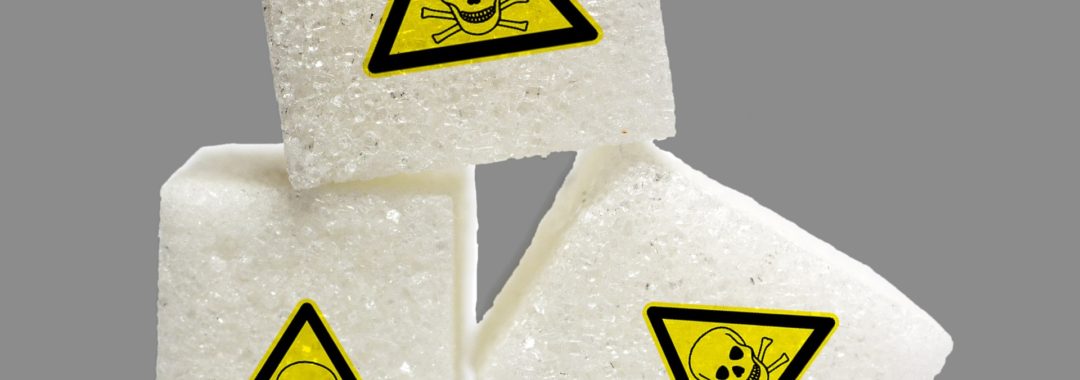One of the things I always talk about with my patients who have a chronic disease state, or women’s health issue, or any health issue, is that it is crucial not to buy into becoming your health label.
The more we focus on a disease state, the harder it is to manage, and the worse all our symptoms become. Then the vicious cycle, and merry go round begins and never seems to end. The more we feed something, the bigger it grows.
There are now lots of research to back this up and why when treating disease states, pain, and other associated symptoms there needs a multimodality approach. You cannot separate the physical and mental aspects of a disease, and the impact that the mind can also have on a disease and its symptoms.
As per usual, when we talk about a difficult subject, which will probably trigger some, I always ask everyone to try and take the personal out of things. This subject is being discussed with the intent to help people, because it is a very important topic that needs to be talked about. This is seen very often in practice, and is often hindering people in them getting better, so it needs to be discussed.
The difference between Research and a Google Search
When someone is first diagnosed with a disease state, it is often understandable that someone would want to try and find a way to help their health issue. This is actually something I encourage all my patients to do. Part of what I do is educating patients how they can best manage their disease and also the importance and difference between good research, compared to someone’s google search.
Research, and a google search, are two totally different things and many people get this confused. I have talked about this often in many of my articles, and also explained why Dr Google is not a good place to get your health information from. Despite that, any free to the public research papers that may be out there are many years old, and now out of date. The other things is, unless you have done study in how to quantify good research, you could be taking some very bad research data and believing it to be true, when in fact it is complete rubbish. Research data analysis and terminology takes years to understand fully, and no google search is going to help anyone learn that.
That does not mean that one should not be educated and stop trying to find out about their disease state. But, there is a point when someone is constantly looking for answers, or then becomes obsessed with their disease and symptoms, that this can become very unhealthy. It can also lead to exacerbation of symptoms, increased mental health issues, lack of quality treatments and management, and over analysing even the smallest of symptoms.
Finding the right support
I know I am a big advocate of people getting support, but often we see people getting their health advice from the wrong areas, such as social media groups, who say they are support groups. The hard thing with many of this groups is that they are often run by untrained people, have no qualified health professionals to give proper advice, and many times they are focussed on the negative aspects of a health issue. This then leads to more negative thoughts, and can actually be a source of toxicity and holding you back from real professional help. It is a catch 22 situation and why people need to be careful which groups they join.
This is why people should only join professional support groups facilitated and mediated by health professionals, and people trained in a certain health issues. These groups are also moderated properly, and are kept to factual discussion and centred around positive solutions, rather than negative talk that we see in a great deal of groups.
Focussing on health issue can intensify symptoms
There is so much credible research about how focussing on our symptoms can have the negative consequence of increasing the intensity of the symptoms and also pain. This, in turn, can create more worry about the symptoms, which brings on more anxiety sensations, and increases our desire to focus on our symptoms even more. This is why it is important to work with health professionals to explore ways that you can start to decrease the amount of time spent focussed on health symptoms and worries, reduce reliance on addictive medications, and thus start to break this vicious cycle.
People who experience health anxiety will often find themselves scanning their bodies for signs of ill health and then worrying about bodily sensations. This is not to take away from people actually having very real symptoms from their disease state and health issues. To a certain extent, it is normal to be aware of bodily sensations and changes, and to pay some attention to potential health problems.
Identifying things that can trigger flares
People will have flares of symptoms from time to time, and often there can be no reason for the flare. But in practice, healthcare professionals are trained to ask the right questions and will identify things that cause flares too. Most times, a flare is causes by blowouts in diet, increased alcohol intake (binges), increased stress and anxiety, lack of quality sleep, dehydration, and over doing it. People can also get flare from withdrawal and rebound effects of some medications too. Stress and anxiety are some of the biggest triggers for people and why it is some important to look at the mental and emotion aspects of healthcare management too.
There may be many things that cause a flare and it is important to get help to identify what these are, and to help avoid these triggers in the future.
Retraining your thoughts to be more positive
If you are spending too much time focussing on your symptoms, or you find it difficult to stop thinking about these symptoms, you may need to start working on retraining your thoughts and attentions onto more proactive and positive things. This is where seeing a psychologist as well can help with reduction of symptoms and pain management too.
Unfortunately when we focus on our disease state, or health issue and its associated symptoms, this can actually amplify the intensity of the symptoms, and thus bring on more worry and anxiety symptoms. It can also amplify pain levels and decrease someone’s ability to cope. Chronic pain clearly affects the body, but it also affects emotions, relationships, and the mind. It can cause anxiety and depression, which in turn, can make pain worse. It is that vicious cycle again that need to be broken.
Coping skills to help you have a normal life
When we are focussed on our symptoms, it can take our attention away from everyday activities and even from important tasks. It can also affect their job and also their intimate relationships. It also takes away from actually seeking proper help and management of a disease state, or health issue, from a qualified health professional.
For example, have you ever found it hard to focus on a household chore, or focus on your work, because your attention kept wandering back to a particular area of your body, back to health worries, or back to a particular symptom?
Learning to retrain your attention is therefore an important step in overcoming your health anxiety. It will not only reduce the amount you focus on your symptoms and your disease, but it will also free up your attention to focus on other activities and experiences. It is about helping you have the coping skills you need to have a normal and productive life, rather than constantly focussing on your health issue, and then creating the vicious cycles around that.
Changing behaviours to help manage your health
Once you work with healthcare professionals to help you with coping skills, to assist you in not focussing on symptoms, and your health issue, you will then be in a better position to decide if you would like to change that behaviour. You are also in a better position to be able to deal with flares if they happen and also look at things that can help you better manage your health issue and symptoms. It will also help you with the constant reliance on medications, and painkillers etc, and help you to use them when you really need to.
Never try to manage your health issue on your own
This is why it is so important not to try and manage a health issue on your own, and seek the help of professionals who can help you with multimodality approaches to health management, and look at all the aspects of a health issue. This includes the physical and emotional aspects too.
You are not your disease and not your health label
You are not your disease and your disease does not define who you are. This is why it is so important not to buy into the label of your particular health issue. You need to not let your health issue control you and with the proper help, you can live a normal life, like so many others who have sort the right help already do. You can get your life back with the right help and right health management. Once you do the work, and experience the benefits, you will know it can be done and how much it can change your way of life.
Final Word
If you need help with a women’s health issue, or a particular health issue, you can always contact my friendly staff about how I may be able to assist you. There are also practitioners that are part of The Experts Program, whom we can refer you to and work in with as well.
Regards
Andrew Orr
No Stone Left Unturned
Master of Women’s Health Medicine
The Experts Program
References
- Bushnell MC, Ceko M, Low LA. Cognitive and emotional control of pain and its disruption in chronic pain. Nat Rev Neurosci. 2013;14:502–11.[PMC free article] [PubMed] [Google Scholar]
- Blyth FM, Macfarlane GJ, Nicholas MK. The contribution of psychosocial factors to the development of chronic pain: the key to better outcomes for patients? Pain. 2007;129:8–11. [PubMed] [Google Scholar]
- Aschbacher K, Adam EK, Crofford LJ, et al. Linking disease symptoms and subtypes with personalized systems-based phenotypes: a proof of concept study. Brain Behavior Immunity. 2012;26:1047–56. [PMC free article][PubMed] [Google Scholar]
- Breivik H, Collett B, Ventafridda V, Cohen R, Gallacher D. Survey of chronic pain in Europe: prevalence, impact on daily life, and treatment. Eur J Pain. 2006;10(4):287–333. [PubMed] [Google Scholar]
- Scott KM, Bruffaerts R, Tsang A, et al. Depression-anxiety relationships with chronic physical conditions: results from the World Mental Health Surveys. J Affect Disord. 2007;103(1–3):113–120. [PubMed] [Google Scholar]
- Closs SJ, Staples V, Reid I, Bennett MI, Briggs M. The impact of neuropathic pain on relationships. J Adv Nurs. 2009;65(2):402–411. [PubMed







 References
References




